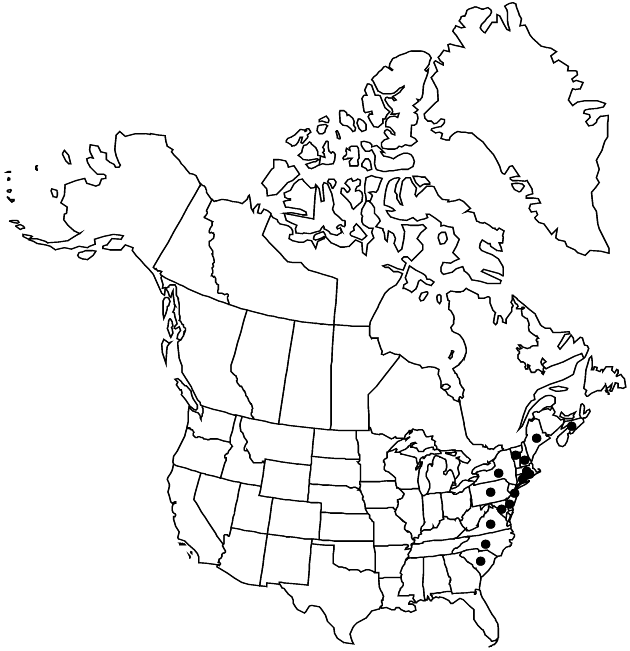Difference between revisions of "Eutrochium dubium"
Sida 21: 901. 2004.
FNA>Volume Importer |
imported>Volume Importer |
||
| Line 8: | Line 8: | ||
}} | }} | ||
|common_names=Coastal plain joepyeweed;joepye thoroughwort | |common_names=Coastal plain joepyeweed;joepye thoroughwort | ||
| + | |special_status={{Treatment/ID/Special_status | ||
| + | |code=E | ||
| + | |label=Endemic | ||
| + | }} | ||
|basionyms={{Treatment/ID/Basionym | |basionyms={{Treatment/ID/Basionym | ||
|name=Eupatorium dubium | |name=Eupatorium dubium | ||
| Line 64: | Line 68: | ||
|publication title=Sida | |publication title=Sida | ||
|publication year=2004 | |publication year=2004 | ||
| − | |special status= | + | |special status=Endemic |
| − | |source xml=https:// | + | |source xml=https://bibilujan@bitbucket.org/aafc-mbb/fna-data-curation.git/src/bb6b7e3a7de7d3b7888a1ad48c7fd8f5c722d8d6/coarse_grained_fna_xml/V19-20-21/V21_1191.xml |
|tribe=Asteraceae tribe Eupatorieae | |tribe=Asteraceae tribe Eupatorieae | ||
|genus=Eutrochium | |genus=Eutrochium | ||
Revision as of 20:54, 27 May 2020
Plants 40–120(–170) cm. Stems usually purple-spotted, sometimes uniformly purple, solid, glabrous proximally, glandular-puberulent distally. Leaves mostly in 3s–4s; petioles 7–25 mm, glabrous; blades usually ± 3-nerved, rarely pinnately veined, deltate-ovate or ovate to lance-ovate, 5–16 × 2–8 cm, relatively thick and firm (often rugose), bases usually abruptly contracted to petioles, margins coarsely serrate, abaxial faces densely gland-dotted and sparingly hirsute (at least on midribs and main veins), adaxial faces scabrous, glabrescent. Heads usually in ± convex, sometimes flat-topped, corymbiform arrays. Involucres often purplish, 6.5–9 × 2.5–5 mm. Phyllaries glabrous or sparsely hairy. Florets (4–)5–9(–10); corollas usually dark purple, rarely pinkish or white, 4.5–7 mm. Cypselae 3–4.5 mm. 2n = 20.
Phenology: Flowering late summer–early fall.
Habitat: Moist habitats, in sandy or gravelly, acid soils, open sun or partial shade
Elevation: 0–50+ m
Distribution

N.S., Conn., Del., Maine, Md., Mass., N.H., N.J., N.Y., N.C., Pa., R.I., S.C., Vt., Va.
Discussion
Eutrochium dubium is restricted to the coastal plain, and inland along major river systems, of eastern North America. Identification of E. dubium has been difficult for field botanists, as evidenced by misidentified herbarium specimens. The most prominent character distinguishing E. dubium from its relatives (especially E. maculatum) is the 3-nerved leaf venation: the proximalmost pair of lateral veins are more prominent and more prolonged than the others. This character is best observed on abaxial leaf faces.
Selected References
None.